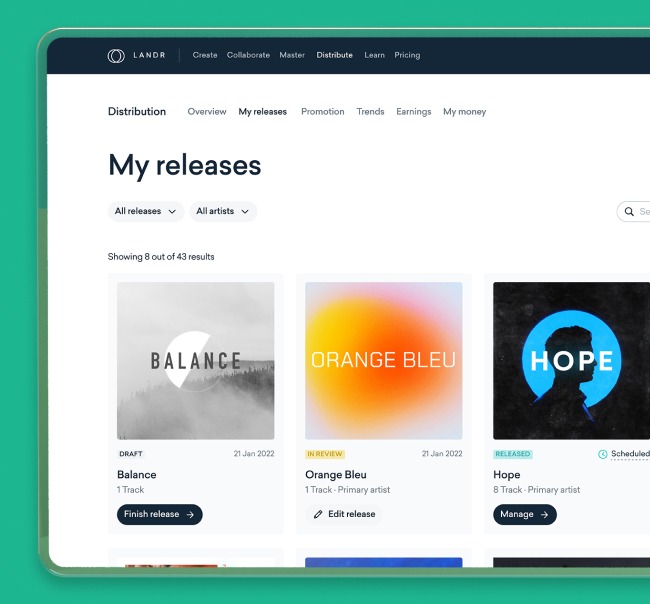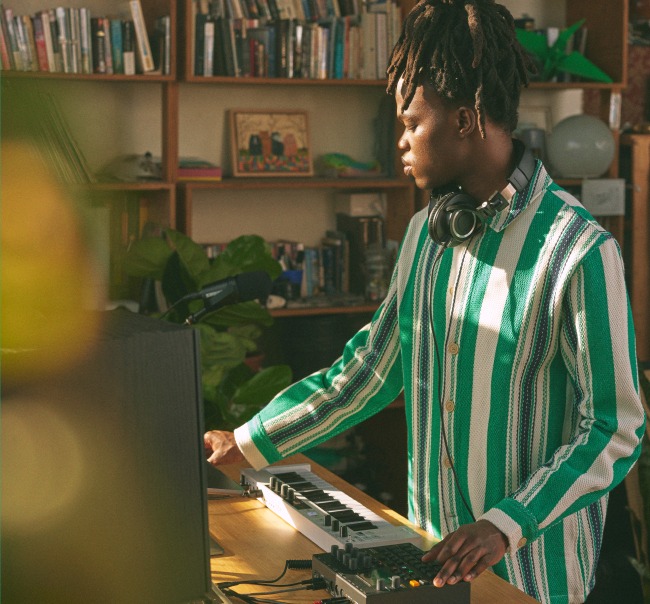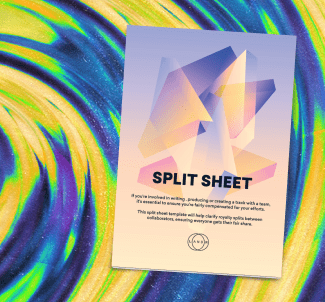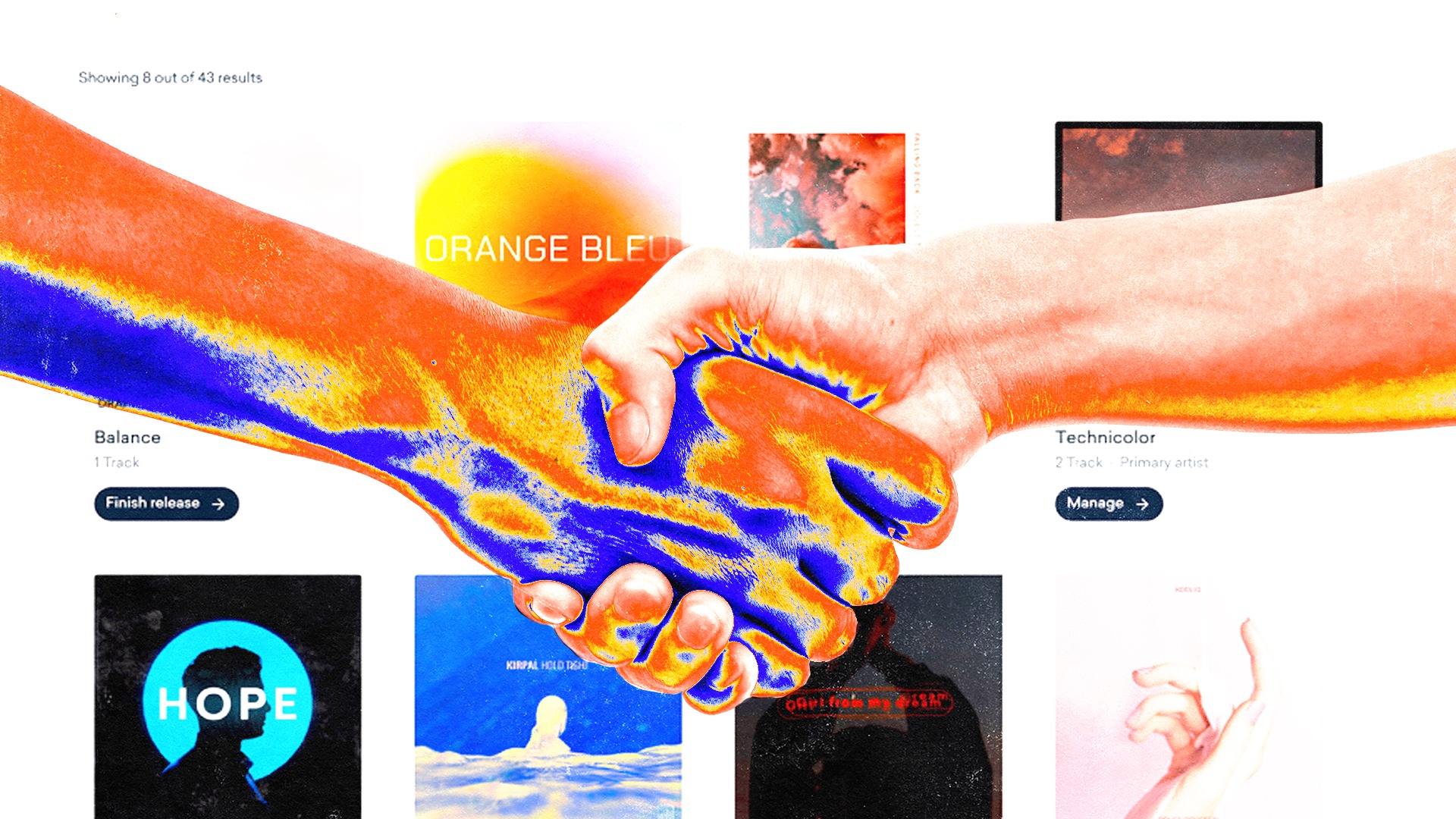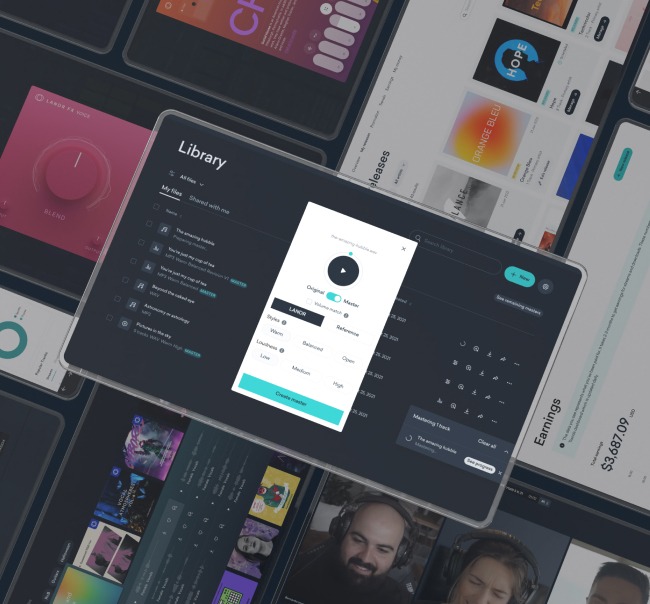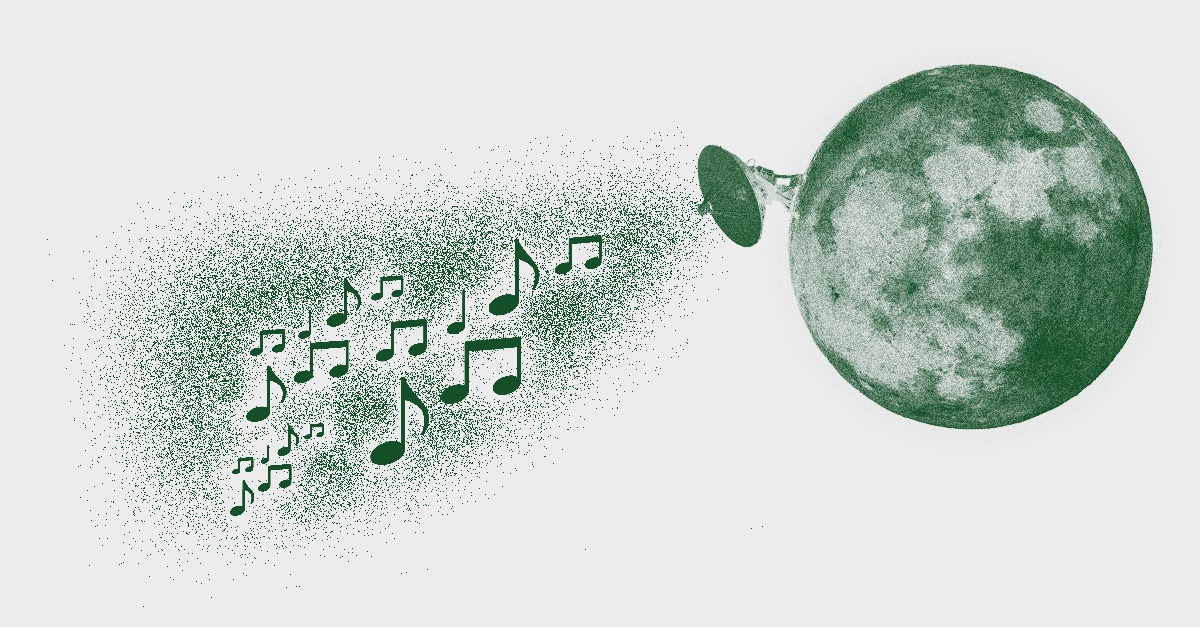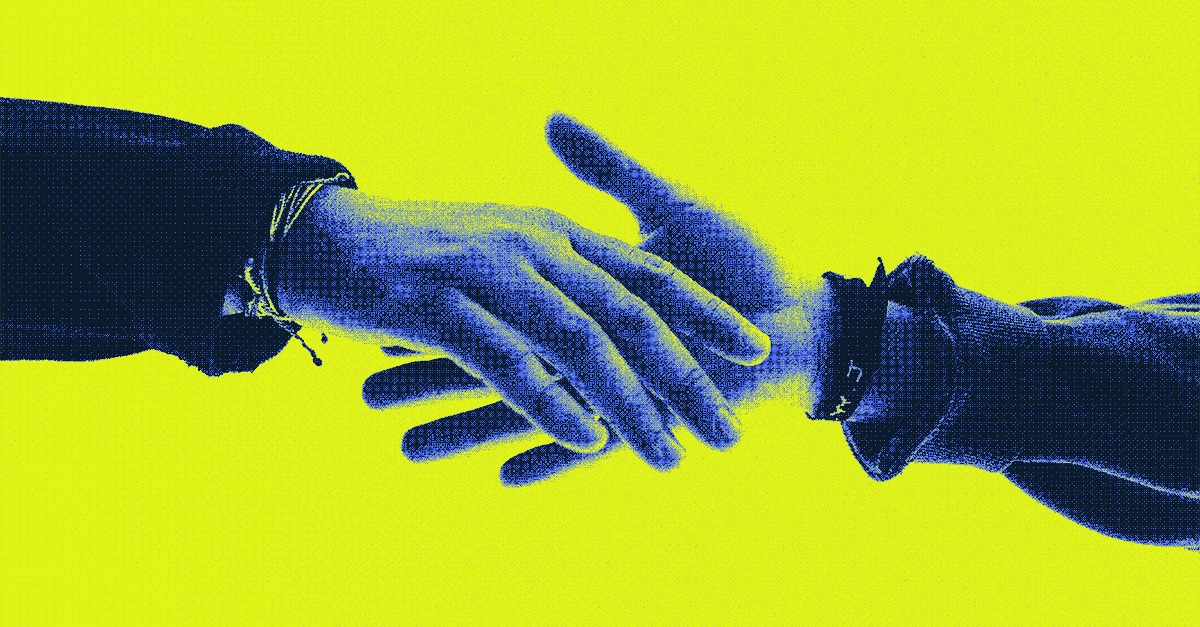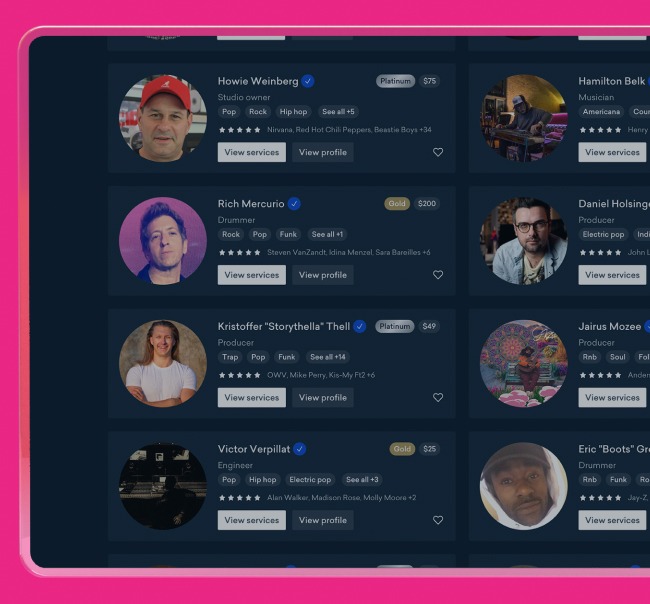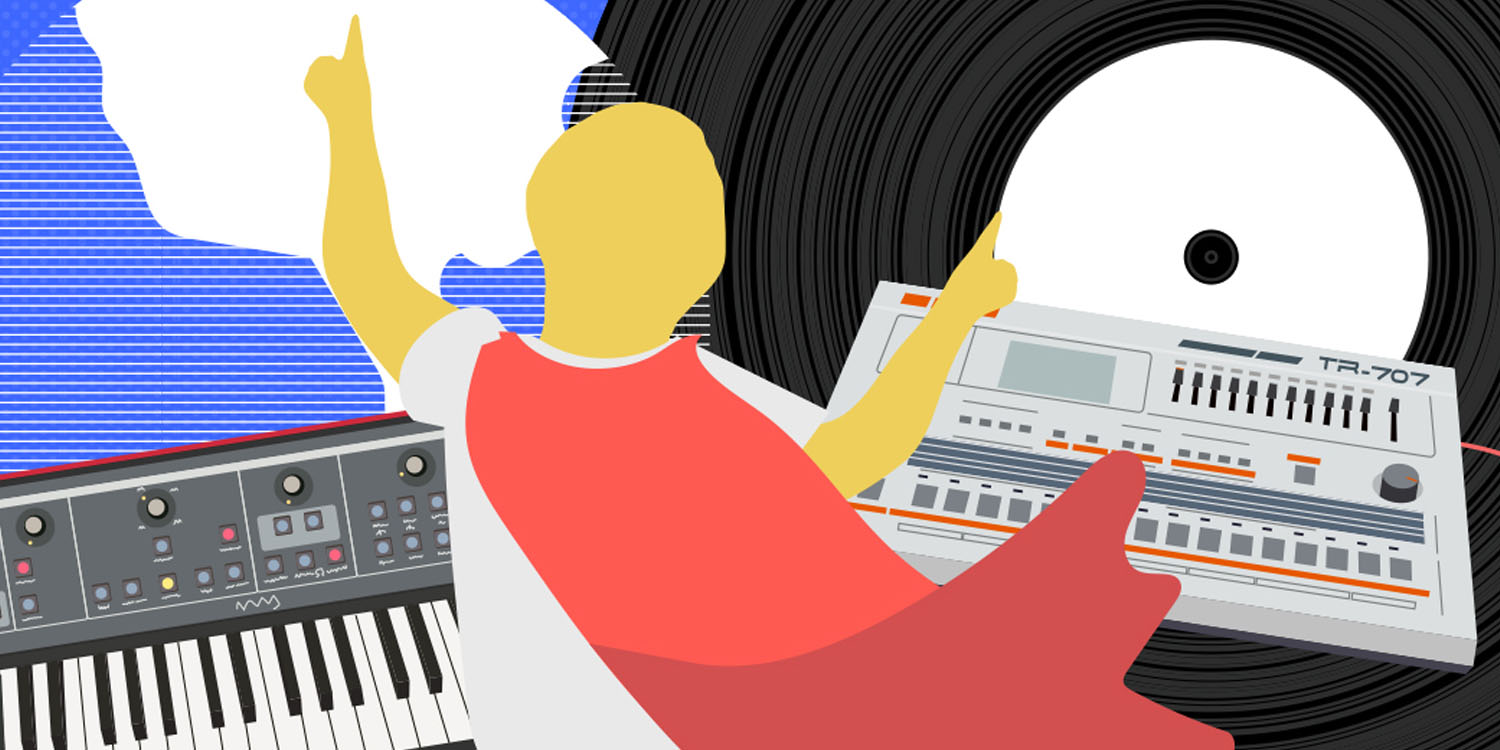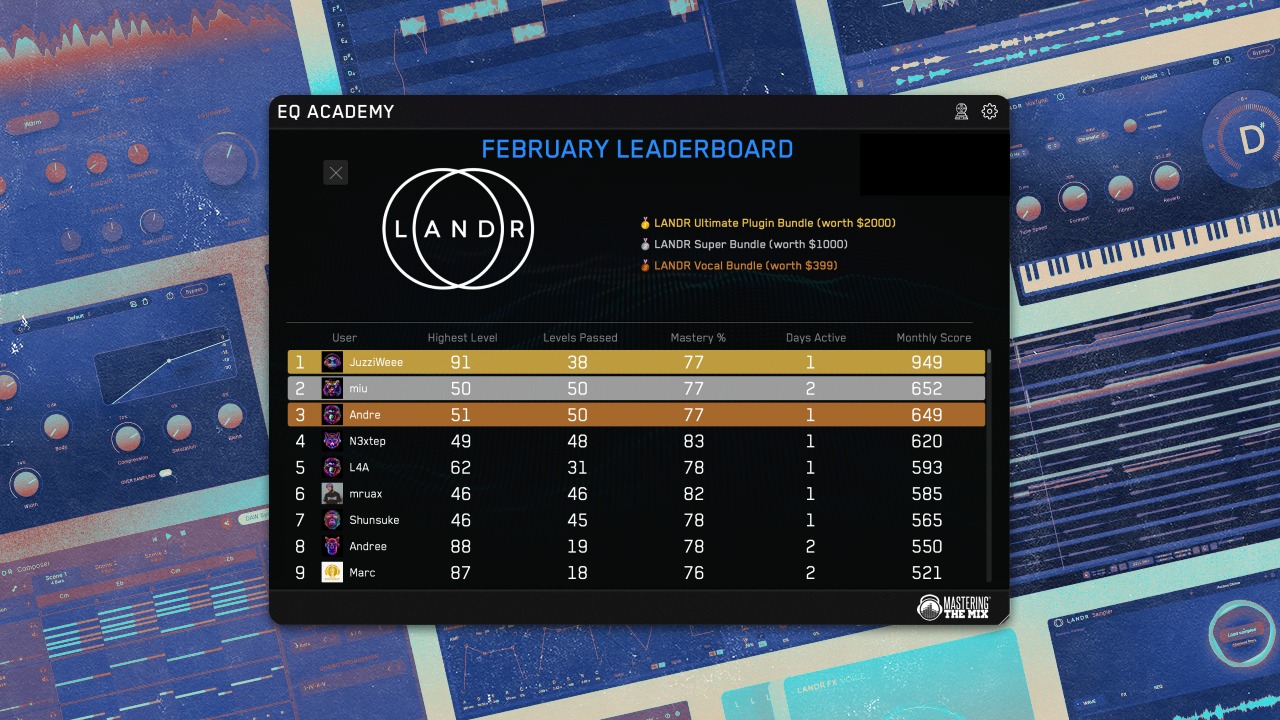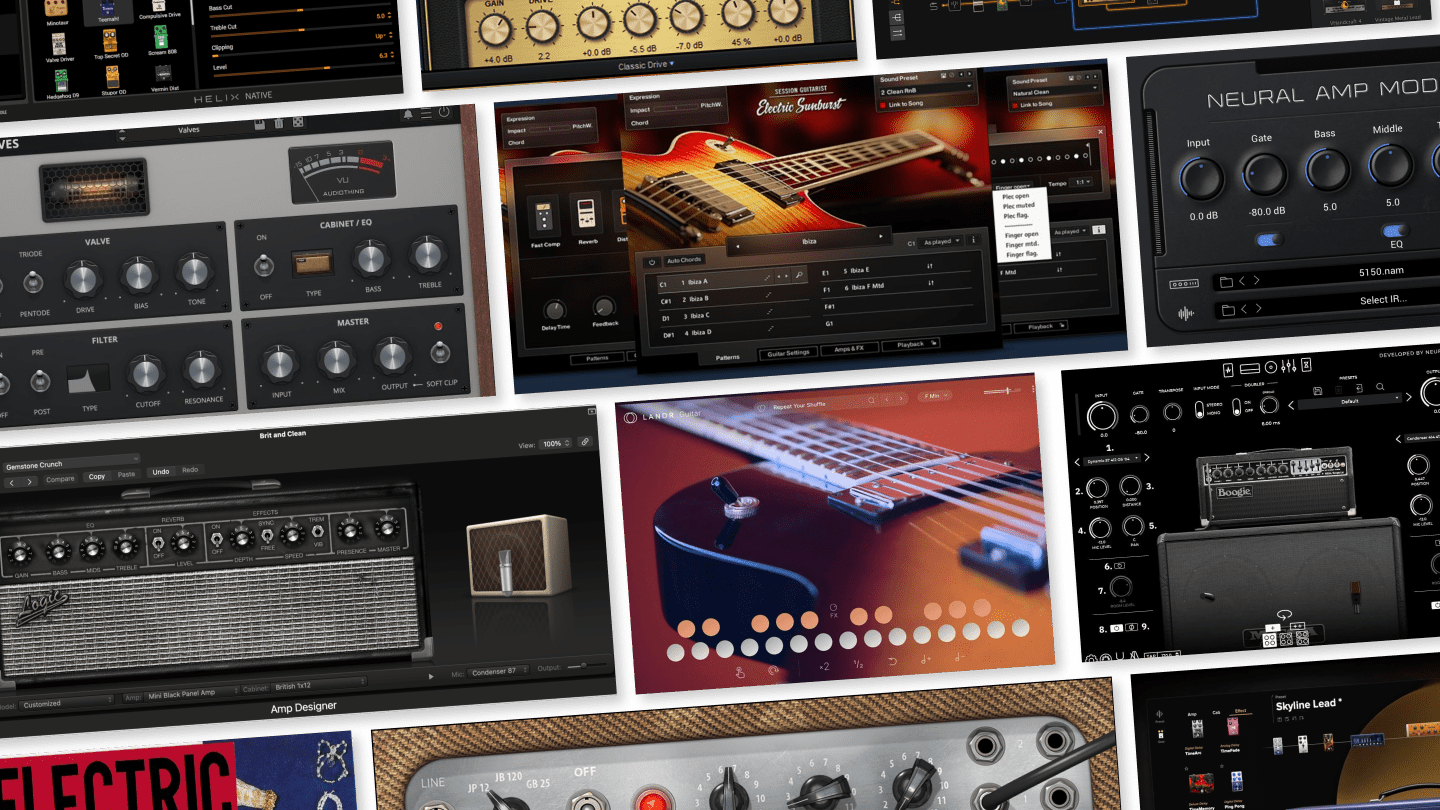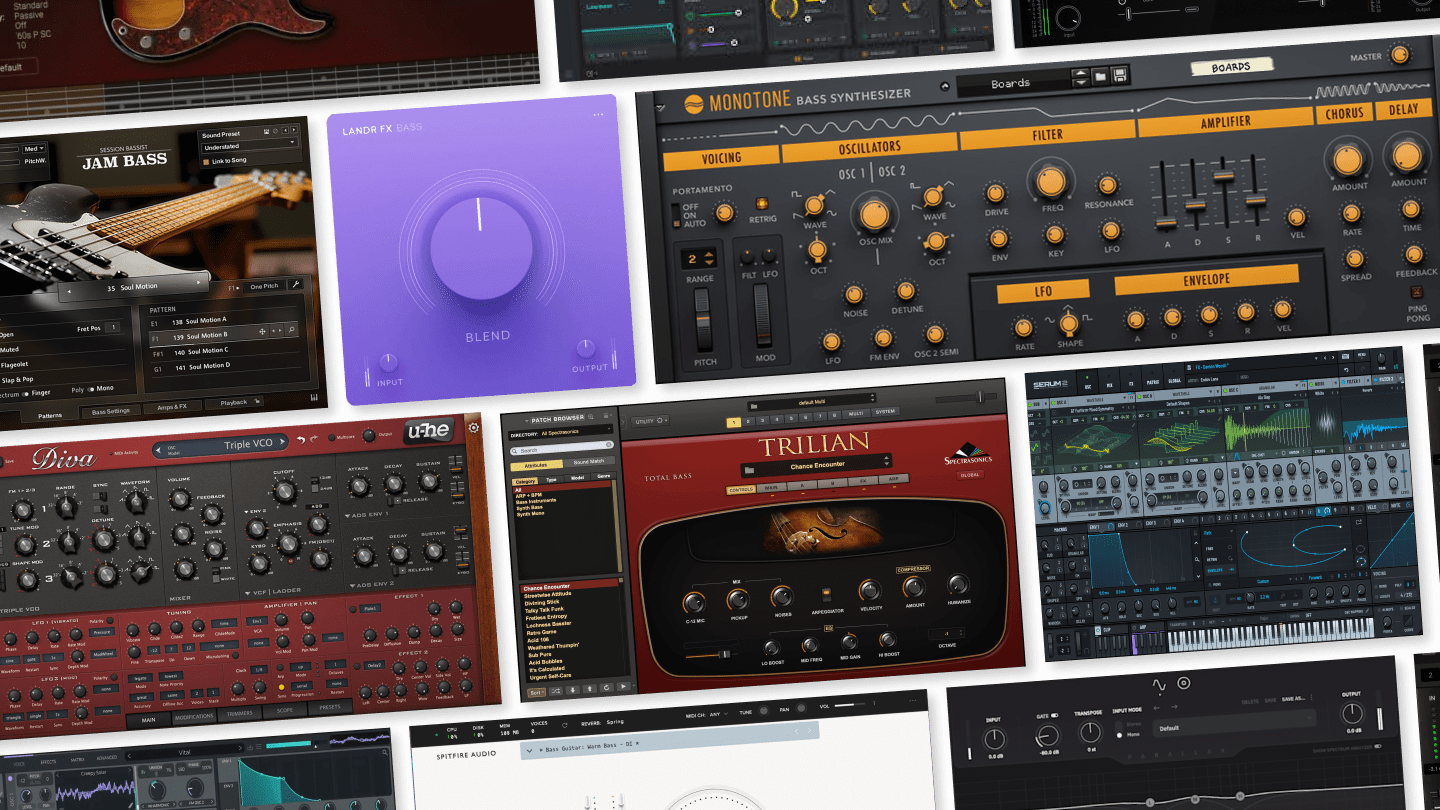
How to Get Signed to a Record Label in 2026

For some artists, signing a record deal represents a huge career goal. But at times it can be unclear exactly how to get signed to a record label.
Whether you’re just getting started writing your first few singles or you’re sitting on the album you’ve always dreamed of releasing, getting label attention and landing a deal can feel like a murky and complex process.
The good news is that with a bit of creativity, there are a handful of concrete ways to generate label A&R (artist & repertoire) attention and ultimately land a successful signing.
Curious about signing a record deal? Let’s dive in!
What is a record deal?
A record deal is an agreement between an artist and a record label to release an album, EP or single jointly. In most record deals, the label receives a percentage of royalties and ownership of the master recordings, while the artist receives their share of royalties in addition to promotional support, distribution and an advance (kind of like a loan) to complete the production of the record.
Of course, no two record deals are the same.
Depending on the size and notoriety of the label, it may offer to pay for merch production (vinyl, CDs, or apparel), PR campaigns, tour booking support and publishing services.
At its core, a record label is a brand that promises to give your music a wider platform within the music industry while funding commercial activities.
What is a record label advance?
An advance is a type of interest-free loan given to an artist to fund the completion and promotion of their musical release.
Because an advance is a loan, it must be repaid, usually from future merchandise sales, publishing opportunities or royalties.
If you’re considering an advance from a prospective record label, be careful. This is not a payday or free money, you will have to pay it back eventually.
Your label will get proceeds from your music for however long it takes to repay the advance, so keep that in mind before signing a record deal.
Master recording rights versus publishing rights
Music rights and royalties are divided between two domains: master recording rights and publishing rights.
Record deals sometimes transfer ownership of master recording rights from the artist to the label.
They do not impact ownership of publishing rights, so we’ll be focusing on master recording rights in this article.
Master recording rights are the rights to the music recording itself, whereas publishing royalty rights encompass mechanical, performance and sync royalties collected by publishers and the writers of a composition.
Whoever owns the master recording can profit from sync master licensing to visual media such as TV, film and advertising all of which directly use the recording for commercial purposes.
The master owner also collects digital performance royalties generated whenever the recording is streamed, played on satellite or cable radio or downloaded from platforms like iTunes.
Types of record deals
If you go record deal shopping, there are a few kinds of deals you may encounter on your journey.
Here are six distinct types of record deal:
- The 70/30 record deal
- The 360 record deal
- The distribution deal
- The production agrement
- The joint venture
- The upstream record deal
Let’s unpack each in a bit more detail.
What is a 70/30 record deal?
70/30 Record Deal Specs
| Advance? | Yes |
| Royalty split | 70/30 - 80/20 |
| Costs covered by advance | Recording, promotion |
| Master ownership | Label |
Traditionally, record deals split royalties between artist and label.
This split is usually negotiated throughout the signing process, but a standard split often sits somewhere between 70/30 and 80/20 between label and artist.
In these recording contracts, the label pays an advance large enough to help the artist produce and promote their record, in exchange for 80% of royalties.
In 2024, these kinds of deals receive a lot of criticism from artists, given how little the artist owns of their royalties or their master while still having to pay the advance back.
That’s why other kinds of record deals have become more commonplace in the industry.
What is a 360 record deal?
360 Record Deal Specs
| Advance? | Yes |
| Royalty split | 80/20 |
| Costs covered by advance | Recording, promotion, touring, PR, etc. |
| Master ownership | Label |
The 360 record deal is a modernized version of the traditional record deal. The label makes a substantial investment early on and supports the artist throughout their development.
You’ll often see artists with mainstream potential going for deals that offer them huge advances early on in their careers.
The 360 deal has gathered a mixed response from artists.
Some artists owe their careers to a major label stepping in with a lot of money.
While other artists don’t like the fact that the label essentially owns your image, social media, promotion and most of your royalties long into the future.
Signing this kind of deal can set you up for mainstream success, but it’ll also invite label influence into every aspect of your artistic development and process.
What is a distribution deal?
Distribution Deal Specs
| Advance? | Sometimes |
| Royalty split | 80/20 - 70/30 |
| Costs covered by advance | Recording, promotion |
| Master ownership | Artist |
While they usually don’t directly involve record labels, distribution deals help independent artists distribute their music to streaming platforms while ensuring placement in high-profile playlists.
These deals also sometimes help with promotion via media outlets and may also cover distribution to physical music and merchandise stores.
Arguably, distribution deals are the least predatory deals in the industry, given that the artist retains full ownership of their masters.
If you’re an independent artist with a built-in fanbase and you don’t need label support for promotion or touring, a distribution deal can connect you with important music industry gatekeepers without requiring you to give up ownership.
What is a production agreement?
Production Agreement Specs
| Advance? | No |
| Royalty split | 50/50 |
| Costs covered by advance | None |
| Master ownership | Producer |
Producer deals are unique because they don’t directly involve a record label, at least not until later on in the process.
Instead, a producer (who may be associated with a label) decides to work with an artist in exchange for ownership of their masters.
When the recording is completed, the producer then helps to sell it to a third-party label for release.
This kind of deal is suitable for singer-songwriters who need technical support and guidance through their production process.
But this arrangement positions the producer as a middle-man between the artist and the label, and in some cases can put artists in a vulnerable position in terms of their rights and ownership over their work.
However, if the producer is connected and able to generate a recording that a label is eager to market and release, this kind of deal can be effective.
What is a joint venture record deal?
Joint Venture Deal Specs
| Advance? | Yes |
| Royalty split | 50/50 |
| Costs covered by advance | Recording, promotion |
| Master ownership | Label |
The main feature of a joint venture record deal (or profit share deal) is that the artist and the label split royalties evenly.
Typically, these deals feature a slightly smaller advance, and put a bit more onus on the artist to promote their music.
But both parties are still equally motivated to produce quality music and generate revenue.
While every joint venture record deal is different, these deals are much more of a partnership that equally benefits both parties.
What is an upstream record deal?
Upstream Record Deal Specs
| Advance? | Yes |
| Royalty split | 70/30 - 80/20 |
| Costs covered by advance | Recording, promotion |
| Master ownership | Label |
An upstream record deal is made between an artist and a small record label with the goal of eventually upstreaming the artist to a larger, major label.
The music industry is dominated by major labels like Sony, Warner and others that most people have heard of.
However, many of these labels work with smaller labels that, for a finders fee, exist to develop talent and prepare artists to be “upstreamed” towards releasing with a major label.
There’s lot’s of great examples of independent artists following up a small record deal with a major label debut.
While it may be structured like a traditional record deal, this kind of record deal where the artist’s goal is to generate a bigger future signing is known as an upstream record deal.
How to get signed to a record label
Alright, now that you know what a record deal is and the types of record deals that you’ll find in the music industry, let’s take a brief look at how to get signed to a record deal.
I’ll share a few milestones to have in mind and some tips for getting attention from label A&R (artists and repertoire) representatives.
Make great music
Okay, let’s start off with an obvious but critical aspect of getting a record deal—making music!
If you want to attract attention from labels, the music has to be good. Everything from songwriting, to recording, mixing and mastering needs to sound as good as it can.
What makes a track sound good is always subjective, but think about the aesthetic and sound you want and stick to it.
If you’re looking for Top 40 mainstream success, your music should sound that way. If you want to make esoteric indie lo-fi, you’ll need to find the right sound.
Ultimately, good music and good art sells itself.
Find the story around your art
I could say “build your social media following” or “create your visual brand,” but ultimately your social media presence, your style and your art tell a story.
Record labels are looking for someone they can create a narrative around. They love artists whose fanbases believe in them and cheer on their successes.
A larger audience of stagnant followers who don’t actually engage with your music will never beat a smaller audience of rabidly obsessed fans.
So consider the wider narrative you want to share on social media. Think about what your online presence says about you and your music.
Creating a feeling in your music that matches your visual identity will tie everything together while also being instantly recognisable to your audience.
Develop a live show
Record labels tend to like artists that have the ability to play live and book some gigs.
Touring is a huge part of promoting a major release, and it’s currently one of the more common ways to make money from music.
So consider developing your live performance skills.
Play shows in your local area, build connections with local artists and music industry A&R representatives and apply to industry festivals like SXSW, Pop Montreal, NXNE, Mondo NYC and others.
In my experience, signing a record deal with one of my earlier bands would have never happened if we weren’t playing lots of shows in our hometown and on the road.
Consider hiring a manager or a music lawyer
Having a management team is very useful if you’re starting to get label attention and you think you’re close to landing a recording contract.
If you can find a good manager who knows the industry and has the right connections, you may be able to get a better deal with a bigger label.
Once you get to the signing table, it’s very prudent to bring on the help of a music lawyer.
Invest in a representative who’s got your interests in mind and have them read through and negotiate anything you’re thinking about signing. This could pay huge dividends in the future and keep you out of a predatory contract.
Is it easy to get a record deal?
It is not easy to get a record deal, but with a bit of talent and a lot of hard work it’s not impossible.
If you’re just getting started with making music or your music career, you may be best off focusing on making music and building your network.
Remember, you don’t necessarily need a record deal to find success with your music.
There are many tools and strategies modern artists use to make music and build their following independently—many artists are choosing this route more and more!
You could even start your own record label, especially if you play in many projects or if you find yourself in a larger community of creators.
But if you’re just starting your music career, don’t get too hung up on getting a record deal. Just focus on expressing yourself through music and sharing your story with your fans.
🧠 Hot tip
Gear guides, tips, tutorials, inspiration and more—delivered weekly.
Keep up with the LANDR Blog.
